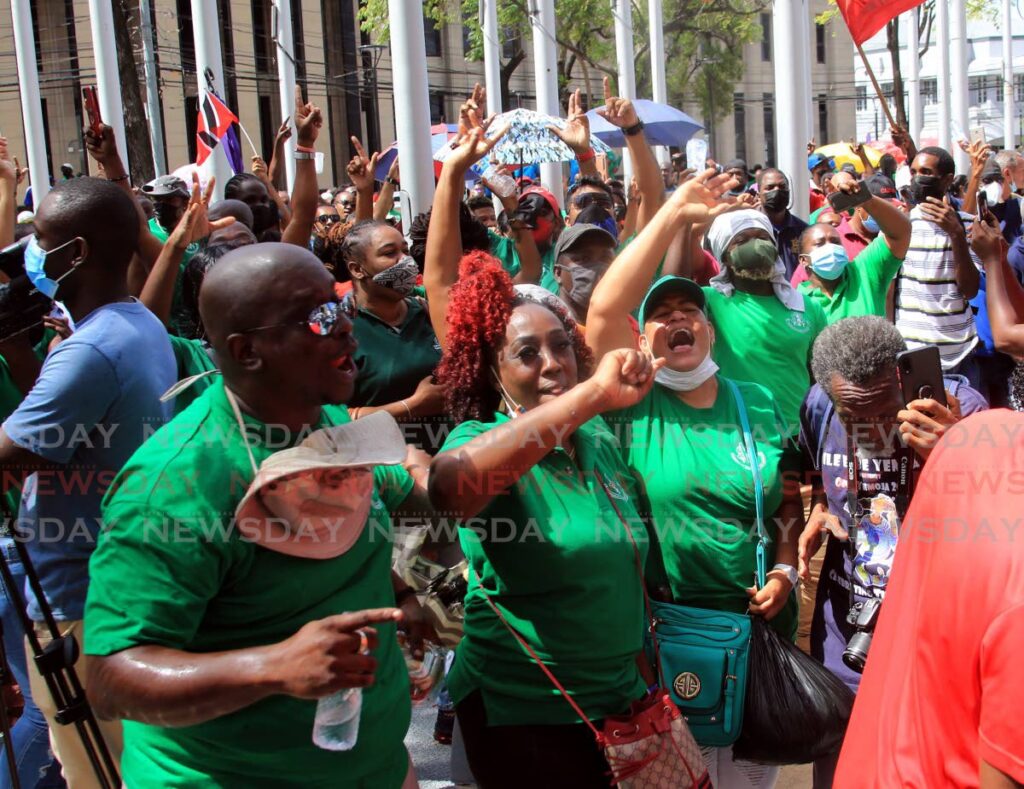UWI economist: Unions, State must strike balance on wages

Economist and UWI lecturer Dr Vaalmikki Arjoon says unions and the State need to strike a balance in their negotiations, taking into consideration the increase in the cost of living over the years, the country’s revenue, and productivity levels of employees and processes.
He described the Chief Personnel Officer’s (CPO) offer of a two per cent salary increase over eight years as “minuscule” considering the increase in the prices of all the items people use on a daily basis and the overall cost of living since the last time salaries received an increase in 2013.
He noted that since 2013, overall prices have increased by 22 per cent, and food prices increased by 47.6 per cent.
“Currently, what we consume on a daily basis are the highest they have ever been for a myriad of reasons – global supply chain constraints are causing an increase in the prices of goods we import for resale locally and raw materials for the manufacturing process and the escalated cost of shipping.
“These have all been compounded by the hike in energy prices, and more recently, the higher price for fuel at the pump which not only exacerbates the cost of living but also the cost of doing business, which will again passed on to consumers as higher prices.
“Households living pay-cheque to pay-cheque have been faced with a severe loss in purchasing power and worsened poverty, especially if all their income was being spent on the bare essentials like food items, utilities and rent etc, but were not able to adequately save.
He said, for many, a two per cent increase would not even cover the added cost of fuel people were now incurring, especially those who drive from central, south and east Trinidad on a daily basis for work in Port of Spain.
He added that almost any increase in salaries would be taken away indirectly by the coming property tax, and there were people in the lower income bracket with medical issues that require expensive drugs.
He said the wage negotiations need to include what the employees were offering to the public. He said while many were hardworking, the “worrying productivity levels” in the public sector need to change.
He stressed that productivity was not only up to the employees as many practices in the public service are “riddled with red tape and significant delays” that make it difficult, costly and time consuming to get simple procedures done. He suggested that these processes be shortened and automated to increase productivity.
“It is only fair that if the state is increasing wages, then the public service has to set targets to increase their productivity and meet those targets. At the same time, productivity is not only up to the employees – the steps and processes involved to complete many tasks need to be shortened through greater use of digitisation.”
At the same time, Arjoon said the rate the unions were requesting would be extremely challenging to fund given TT’s revenue streams over the last six years, even with the recent good news from the Ministry of Finance about the performance of the economy.
“They indicated a forthcoming sale of the refinery, growth in much of the non-energy sectors, and an MOU with Guyana which could foster some meaning investments between our two economies to boost our revenue streams.
“While we enjoyed a fiscal surplus of $1.98 billion for the first seven months of the year and the Finance Ministry expects conservatively a $4.5 to $5 billion increase revenues this year, these funds can only give the economy breathing room at this stage and cannot be used to fully satisfy the demands of the unions.”
He added that it was unfortunate that successive governments failed to secure adequate revenue earnings through meaningful and strategic investments outside of the energy sector, which could have made the current negotiation process easier.


Comments
"UWI economist: Unions, State must strike balance on wages"